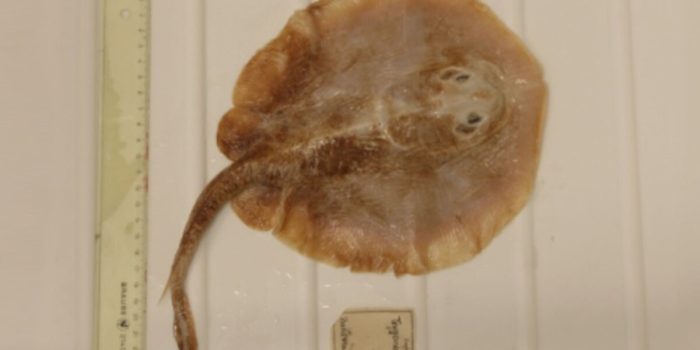The Java Stingaree, a unique marine fish, has been declared extinct due to human activity, marking the first instance of a marine fish species facing such a fate. This disheartening revelation was unveiled in the latest update of the International Union for Conservation of Nature’s (IUCN) Red List of Threatened Species. Simultaneously, the report highlighted the escalating impact of climate change on freshwater fishes, with a staggering 25% of known freshwater fish species at risk of extinction, and 20% directly affected by climate change.
Freshwater fishes, constituting more than half of the world’s known fish species, play a crucial role in ecosystems, providing resilience and supporting millions of people who rely on freshwater ecosystems for various reasons, including fisheries.
The scale of this crisis is alarming, considering that freshwater habitats make up only 1% of aquatic habitats globally. Kathy Hughes, Co-Chair of the IUCN SSC Freshwater Fish Specialist Group, underscores the importance of these diverse species in maintaining ecosystem balance.
“Freshwater fishes make up more than half of the world’s known fish species, an incomprehensible diversity given that freshwater ecosystems comprise only 1 percent of aquatic habitat,” says Hughes.
“These diverse species are integral to the ecosystem, and vital to its resilience. This is essential to the billions of people who rely upon freshwater ecosystems, and the millions of people who rely on their fisheries.”
The destruction of aquatic species aligns with scientists’ predictions, as evidenced by mass fish die-offs globally. Factors contributing to these events include excessive water extraction, pollution, and amplified weather extremes driven by climate change. The toll on vulnerable species, such as the Atlantic Salmon, emphasizes the urgency for large-scale nature restoration.
The demise of the Java Stingaree is attributed to intensive and unregulated fishing, coupled with habitat loss and degradation in the northern coast of Java, particularly Jakarta Bay. Despite monitoring efforts, the species, initially known from a specimen collected in 1862, could not be found again. The Red List currently lists at least 120 critically endangered marine fishes, including the Maugean skate from Tasmania, impacted by pollution resulting from industrial-scale farming.

Conservation biologist Julia Constance from Charles Darwin University conducted the assessment on the Java Stingaree, highlighting the severe consequences of unregulated fishing and industrialization on marine biodiversity. Claire Baffert from WWF’s European Policy Office stresses the need for urgent action, urging EU institutions to adopt the Nature Restoration Law, which includes a target to restore 25,000 kilometers of free-flowing rivers crucial for migratory fish.
“This is yet another wake-up call to our decision makers that large-scale nature restoration cannot wait any longer,” urges Claire Baffert. “To keep this extinction crisis at bay, EU institutions must adopt the long-awaited Nature Restoration Law which includes a target to restore 25,000 kilometers of free-flowing rivers – vital for salmon and other migratory fish.”
“Intensive and generally unregulated fishing is likely the major threat resulting in the depletion of the Java Stingaree population, with coastal fish catches in the Java Sea already declining by the 1870s,” Constance notes.
“The northern coast of Java, particularly Jakarta Bay where the species was known to occur, is also heavily industrialized, with extensive, long-term habitat loss and degradation. These impacts were severe enough to unfortunately cause the extinction of this species.”
The Red List now includes over 44,000 species on the brink of extinction, representing almost 30% of those assessed. This alarming figure underscores the widespread threats faced by various species due to human activities, underscoring the urgent need for transparent and sustainable practices to safeguard Earth’s biodiversity.


